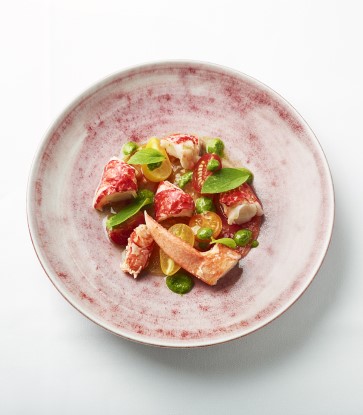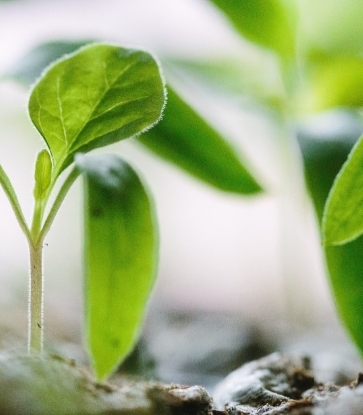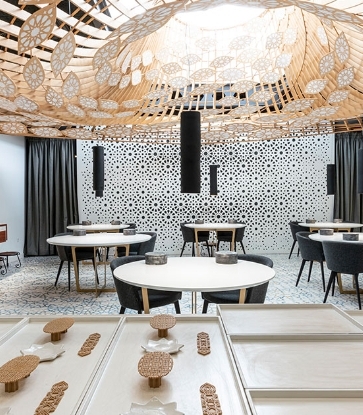When it comes to recycling, many of us are already doing our best to be more conscientious when it comes to our purchasing and disposal decisions. This could include:
- Making more conscious choices about which products to buy based on the recyclability of the packaging
- Readdressing the balance between the levels of waste we throw in the rubbish bin vs that which we allocate to recycling
- Powering through the unpleasantness of emptying the food scraps bin! (Not all councils supply these automatically, so check if you've not yet got one)
These are, of course, all great steps that should be acknowledged… but, as the climate crisis continues to accelerate, is this enough to mitigate our impact on the planet and reduce our individual carbon footprint?
Many people now unquestionably accept recycling as the way forward and, while it’s certainly important to recycle the items we do use rather than sending them to landfill, the process itself is not without a level of impact. You use additional water and cleaning products to wash out the items before putting them in your recycling bag or box; emissions are produced by the lorries in the transportation of the items to the recycling or composting plant; and energy is also used in the recycling process itself… so it turns out that maybe we’re not doing quite as well as we think we are!
Rather than simply deferring wastage from one resource to another, it is much better to reduce the amount we buy altogether and to take into account the 5 Rs: Refuse, Reduce, Reuse, Repurpose – with Recycle as the final option, not the first. As with other habits, incorporating this mindset into our everyday lives takes practice, but with a little awareness, it won’t be long before it becomes part of our daily routines.
Here are some simple steps we can take at home when it comes to food and drink:

Refuse…
Refuse to buy produce which originates from other countries or has travelled long distances.
Instead, look for regional produce, head to your nearest farmers’ market or search for independent local businesses.
Refuse to buy produce which uses excessive or single-use packaging.
Always opt for loose produce where possible or that with minimal recyclable packaging.
Refuse black plastic containers.
While technically recyclable, black plastic cannot be recognised by the UK’s infrared sorting machines at recycling plants, so is rejected.
Refuse the most convenient path, such as shopping at big superstores.
Search for smaller, independent shops, such as those where you can take your own containers to fill with dried goods like rice and pasta from large resuasble storage bins.
Refuse drinks in a bottle or a can when you’re away from home or dining out.
Take your own water bottle/coffee cup to coffee shops and choose something on tap at a bar/restaurant.

Reduce…
Reduce the amount of ingredients you throw away – by planning meals ahead and organising produce in your fridge/cupboards in date order.
Reduce the amount of food you discard when you’re cooking – by incorporating every part of the ingredients into side dishes or other recipes.
Reduce the wastage off your plate – by controlling portions and saving/freezing leftovers.
Reduce what you send to the council lorries – by starting a compost heap in your own garden, then using the nutrient rich fertiliser to feed your own vegetable garden (you can even take the pips/seeds out of your scraps first to try to grow your own!)
Reuse…
It’s worth making a few investments in reusable items. Some may seem more expensive than their disposable counterparts but, in the long run, the cost will often average out to about the same. There are plenty of options available, including…
- Fabric shopping bags to replace plastic bags
- Plastic or glass food containers to replace cling film
- Beeswax wraps to replace sandwich bags
- Metal straws to replace plastic ones
- Reusable water bottles and coffee cups to replace takeaway items – most shops will fill your own container if you ask, and there are schemes such as City to Sea’s ‘Refill’ which help you locate both willing retailers and public water fountains

Repurpose…
It’s difficult to completely eradicate all containers but those you do have can be upcycled. For example:
- Glass dessert pots can become flowerpots
- Ice cream tubs can become storage containers
- Alcohol bottles can become candle holders
- Divided cake topping pots can become storage for beads/sequins for craft projects
Recycle…
The final option in the chain.
When you do have to resort to use single-use items, make sure that you choose those made from materials which are recyclable and dispose of them in the correct recycling stream, so that they stay within the cycle and can be turned into something useful once again.
The Waste and Resources Action Programme (WRAP), has a useful recycling locator tool to help you find the best places to take unwanted items that are not suitable for household recycling, such as coffee pods, tea bags and cleaning product packaging; shops such such as Currys accept old kitchen electricals; and many big superstores have collection boxes for batteries, crisp packets, sweet wrappers, bread bags, carrier bags and water filters. So why not combine your food shop with returning what you can?
Results
Following the 5Rs will help you make better choices: Refusing and Reducing means you’ll bring less into your home; Reusing and Repurposing stops new items from being made and old items from being wasted; and Recycling deals with what’s left (now a lesser amount thanks to the first four steps) by keeping it within a closed loop system.
Every action, no matter how small, adds up when we work together – and by following these steps individually, we will start to see real results.






















